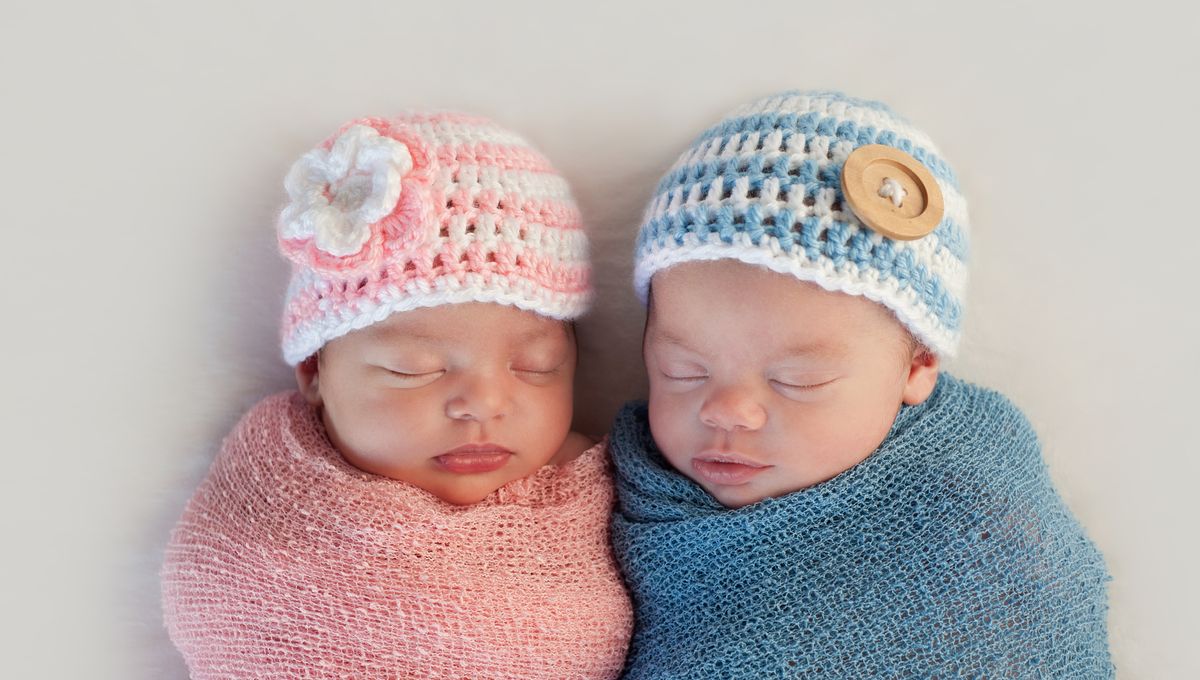
Why do some families see more than their fair share of twin births? Identical twins are a random surprise, but scientists know that non-identical (or fraternal) twins have a genetic link. Finding the specific genes involved, however, has been another story. Now, new research has picked up on seven genes, and a test for them could not only help determine your chances of having twins, but also reveal clues about your fertility.
“It has long been known that fraternal twins have a genetic basis, with non-identical twins often running in families,” said Professor Nick Martin, lead study author and a professor at QIMR Berghofer Medical Research Institute, in a statement. “However, identifying the genetic factors which cause fraternal twins has been like searching for a needle in a haystack.”
But advances in technology have made all the difference. Arriving at the turn of the millennium, gene chips – or DNA microarrays, as they are also known – made it possible to monitor the expression of thousands of genes simultaneously.
“We combined data from five independent studies in Australia, The Netherlands, United States, United Kingdom (UK) and Iceland on 8,265 mothers of spontaneous DZ [dizygotic, another word for non-identical] twins and 264,567 controls, as well as UK, Finnish and Swedish data on independent DZ twin offspring,” Professor Martin explained, which led to the identification of nearly a million gene variants across all 23 human chromosomes.
The team of scientists then compared the frequencies of these variants between mothers of fraternal twins, fraternal twins themselves, and mothers of single offspring in a type of analysis called a genome-wide association study, or GWAS.
In the end, seven genes stood out. Five of them are already known to have roles in the follicle stimulating hormone (FSH) pathway, which is a key part of the female reproductive system, but two had never previously been associated with the possibility of twin births.
“This is just the start,” said Professor Martin. “We have isolated seven genes but we know there are more to find. As the number of mothers in our study increases, we will be able to identify more genes and to predict which women may be super-fertile and prone to having twins.”
On the flip side, genetic testing based on these findings could also have the potential to identify women who may have difficulty conceiving. This aspect of the research was particularly important to study participant Saskia Bollmann, who was the first in her family to have twins when two-year-old Max and Pip came along.
“I understand the propensity to have twins is also related to fertility, and we have seen many friends struggle with fertility, so from that perspective this research is very important,” Bollmann said.
And if you are the mother of non-identical twins, you can get involved too. Professor Martin and the team are still actively recruiting participants for the ongoing Genetics of Dizygotic Twinning study. You’ll need to answer a short questionnaire and provide a saliva sample.
For Bollmann, it was a no-brainer. “I signed up for the study. It was easy and uncomplicated. For gene studies to be meaningful they need many participants and I think it’s really valuable. I would definitely encourage other mothers of twins to participate in the study.”
The study is published in the journal Human Reproduction.
Source Link: Why Non-Identical Twins Run In Some Families, According To Genetics